Health Benefits of Eating Mushrooms: A Complete Review
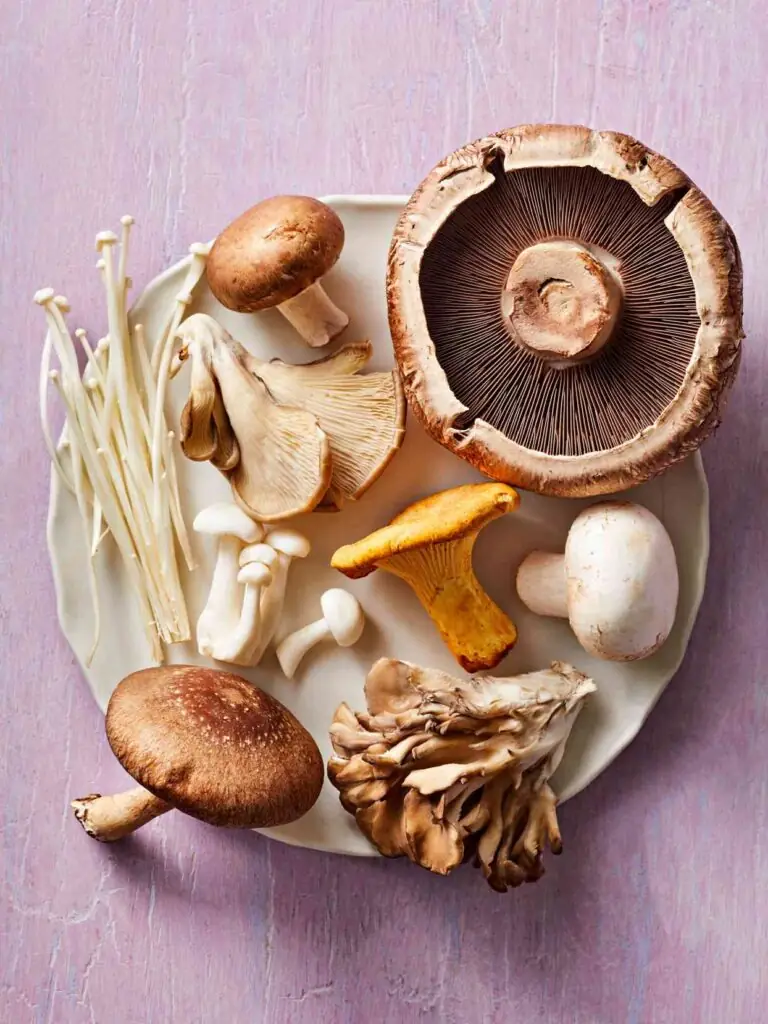
Tasty and aromatic, mushrooms are an excellent addition to your soups, salads, sautés, and numerous other dishes. What are the health benefits of eating mushrooms? What vitamins are they rich in? Can you eat them if you are on a diet?
Read on, and you will find the answers to all these and numerous other questions.
Vitamins
All mushroom types are good sources of B vitamins. Still, sometimes there are noticeable differences in the vitamin content: for example, portobellos are rich in vitamins B2, B3, and B5, while shiitakes contain all three of these vitamins plus vitamin B6 and oyster mushroom only has vitamins B3 and B5 but features measurable quantities of folate (vitamin B9).
For this reason, to make your diet truly balanced and equally rich in all vitamin B varieties, combine various mushroom types in your dishes and not stick to only one or two of them.
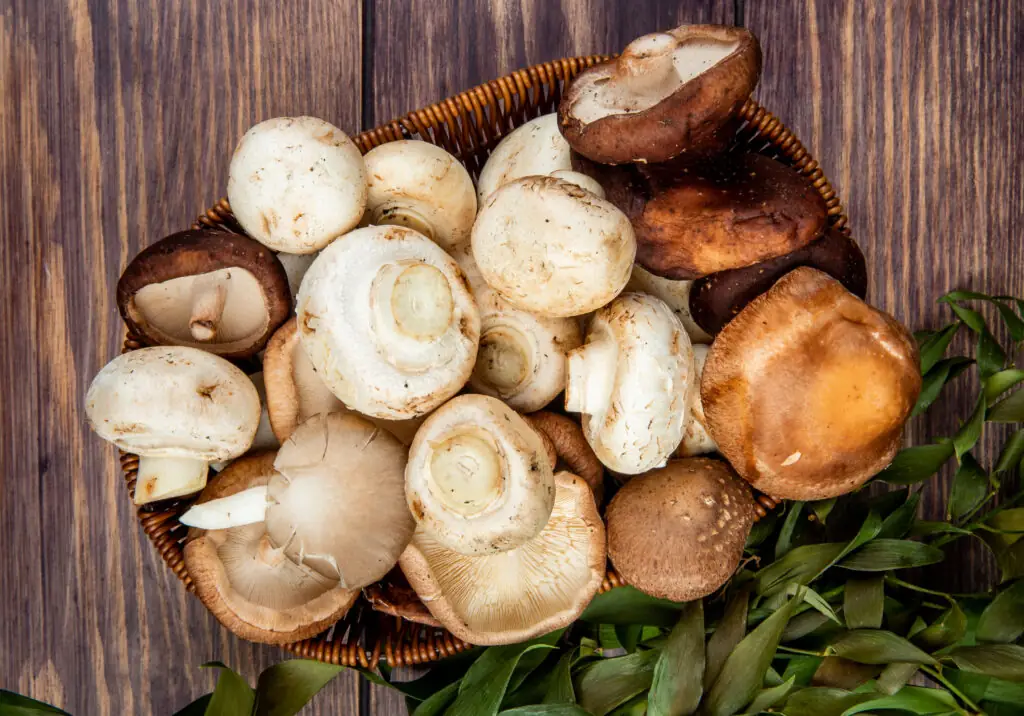
It also needs to be said that while mushrooms, in general, are an excellent way to enrich your diet with B vitamins, no mushroom type contains vitamin B12 (cobalamin). The only viable sources of cobalamin are eggs, meat, liver, and milk, so if you are a vegan, you need to use dietary supplements.
Some manufacturers of portobellos expose them to UV light to increase their content of vitamin D2 (ergocalciferol). Such vitamin D-fortified portobellos are undoubtedly a considerably better choice than regular ones. Still, if your exposure to the sun is very limited, you might still need to use vitamin D supplements.
Dietary Minerals
Actual quantities of dietary minerals vary between various mushroom types. Most of them are good sources of phosphorus (essential for bone health), zinc (required for numerous enzymes), and potassium (essential for normal blood pressure). Some mushroom types — like morels and oysters — are also very rich in iron (used for oxygen delivery to the cells), while shiitakes contain copious amounts of copper (required for red blood cell production).
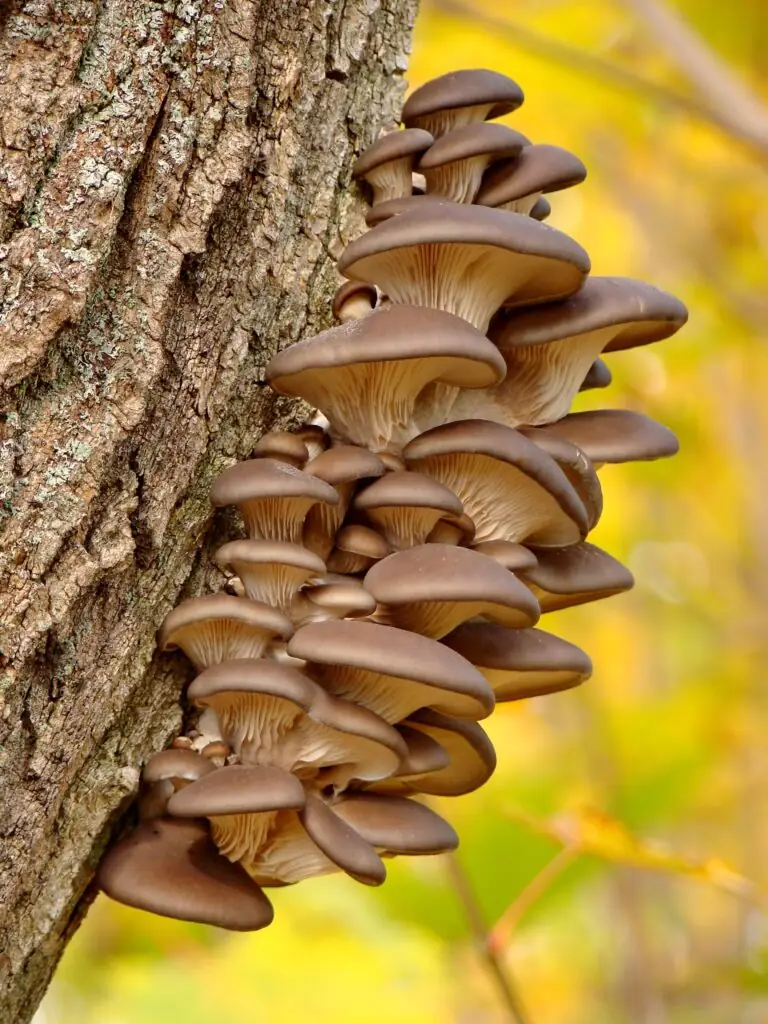
Water and Dietary Fiber
Water makes up more than 90% of any mushroom type; what’s more, most mushrooms contain noticeable quantities of dietary fiber. A combination of water and dietary fiber makes your stool heavier and bulkier and effectively prevents constipation. Other health benefits of dietary fiber include lowering the risk of developing type 2 diabetes.
Energy Content
All mushroom types are very low in calories. As dietary fiber cannot be broken down by the human stomach and helps you feel full for a longer time, mushrooms are an excellent choice for everyone who wants to limit their caloric intake while not suffering from hunger pangs.
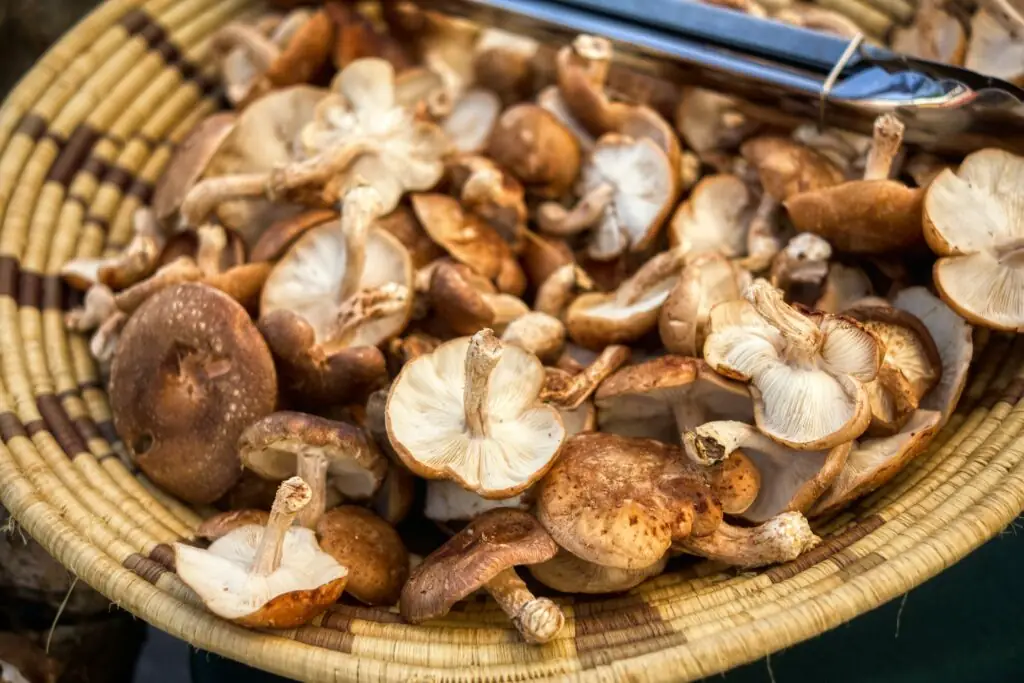
Antioxidants
All mushroom types are rich in antioxidants (among them selenium and choline) that protect the cells from free radicals, improve your general health, and slow down aging.
The nutritional value of wild mushrooms does not differ much from that of indoors-grown portobellos and oysters. Thus, you don’t really need to hike in the woods to get a healthy dose of B vitamins and various dietary minerals: a short visit to a grocery store will be enough.
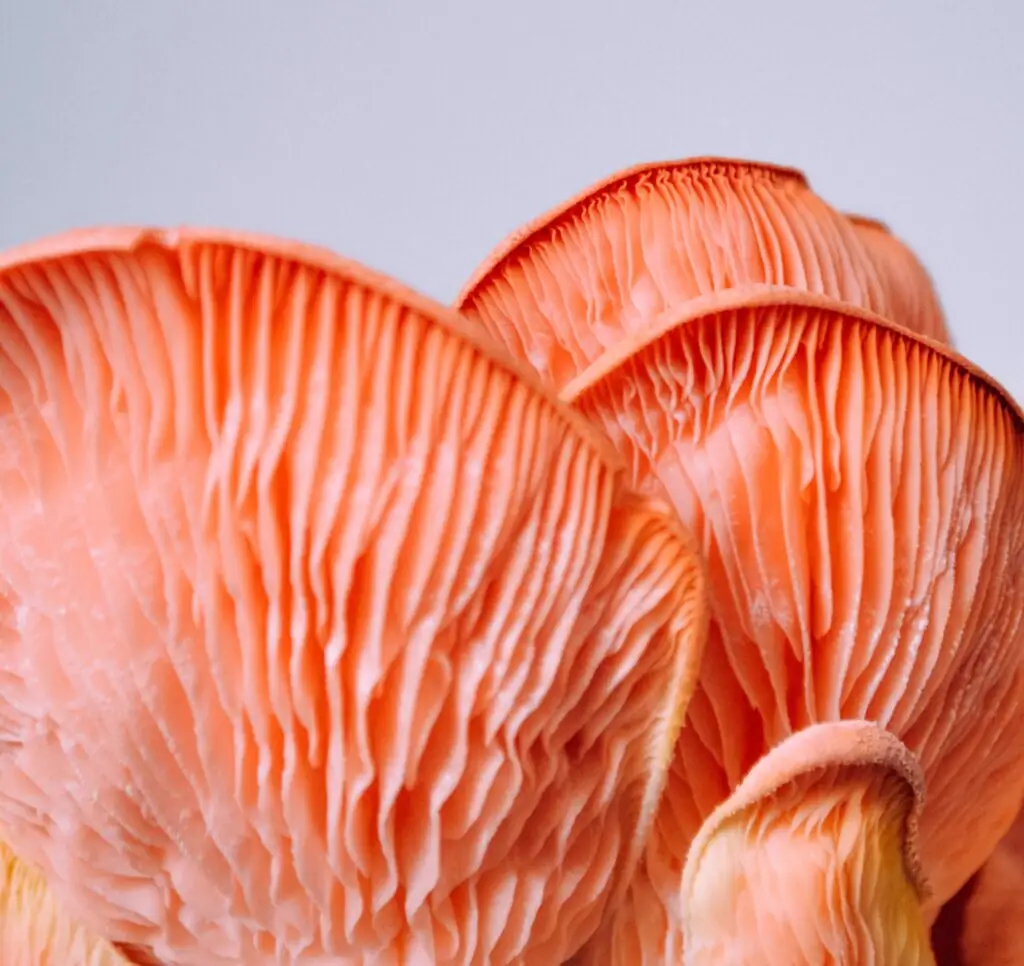
FAQ
In this section you will find the answers to the most common questions about these edible fungi.
What Are the Health Benefits of Eating Raw Mushrooms?
First of all, yes, you can eat most of the mushroom varieties that are sold in grocery stores raw. Portabellas, cremini, white, and enoki mushrooms don’t require cooking to be enjoyed. Then again, some of the varieties you can buy — like morels — require heating to break up the toxin they contain. To be on the safe side, every time you are going to eat a new mushroom variety raw, check the Internet to find out whether it must be cooked or not.
Second, as they are not exposed to water and high temperatures for a long time, raw mushrooms contain slightly higher quantities of B vitamins and dietary minerals. So, if you want to maximize your vitamin intake, eat them raw.
Unfortunately, raw mushrooms have a spongy texture and can be difficult to chew (this is especially true for their stems). Their taste can seem considerably stronger and more earthy, and you may end up cooking them to make your salads more palatable.
Last but not least, don’t forget about the importance of rinsing your raw food thoroughly to remove dirt and debris.
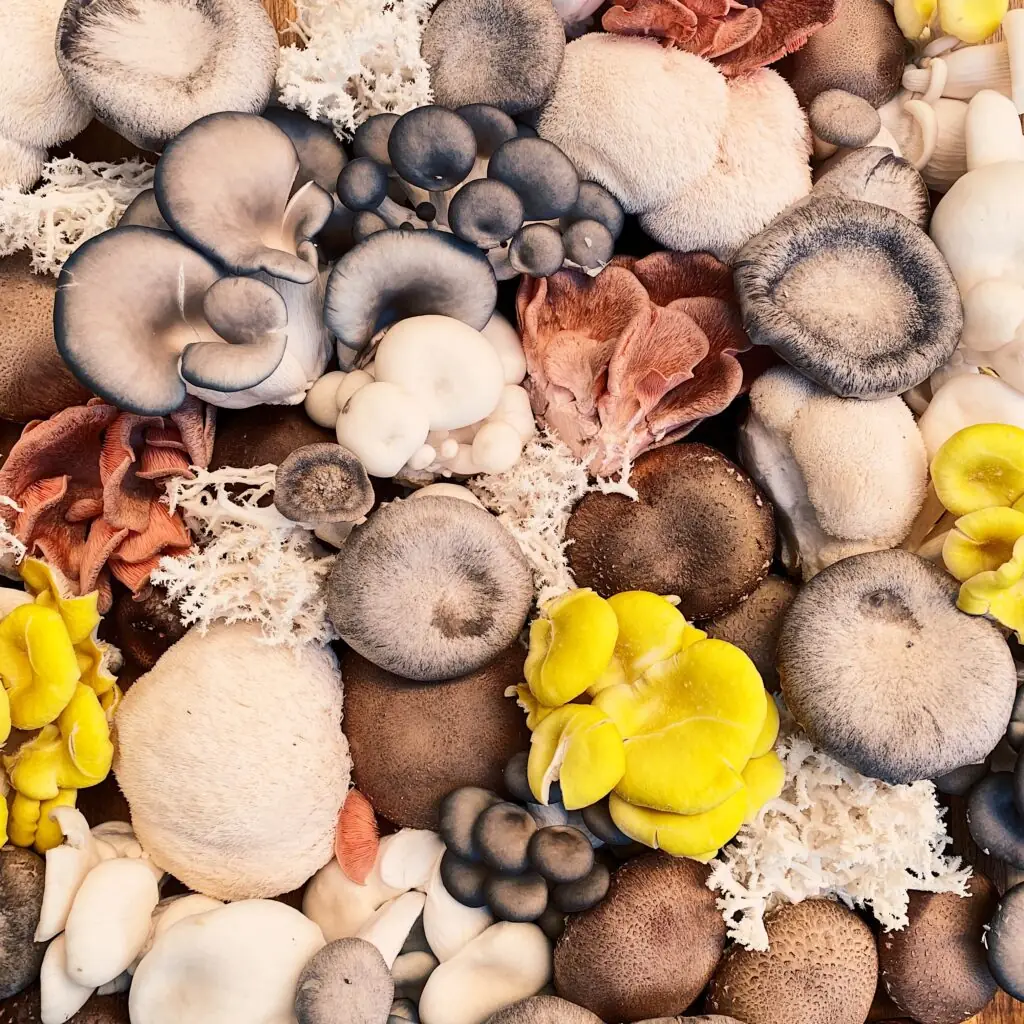
What Is the Healthiest Way to Eat Mushrooms?
The answer is simple: if you can eat them raw and find their taste and texture acceptable, then you are likely to get a bit more B vitamins. If raw mushrooms are not something you can really enjoy, then the only option you have is to cook them. After all, there are other foods — like nuts — that are also extremely rich in B vitamins.
Is Eating Mushrooms Everyday Good or Bad for You?
There is a popular — yet totally erroneous — misconception that if you eat mushrooms every day, you get prone to fungal infections like candidiasis. Fortunately, it is not so: mushrooms do not help smaller fungi propagate in your gut or on your skin/mucous membranes. Your chances of contracting thrush or fungal skin rashes are absolutely not affected by your frequent eating (or not eating at all) of portabellas or morels.
What Health Benefits Come from Eating Mushrooms?
B vitamins and dietary minerals are required for almost all biological processes in your body, so regardless of your preferred mushroom types, eating them helps you improve your general health. What’s more, numerous antioxidant compounds found in all mushroom types delay aging, and foods that are rich in water and dietary fiber are known to prevent constipation.
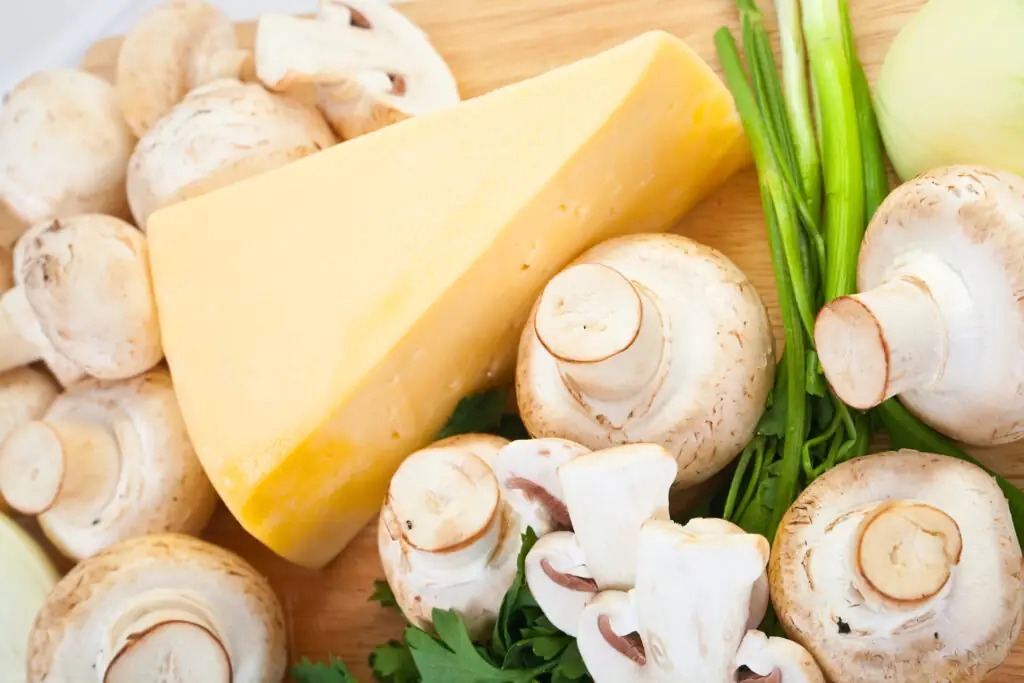
What Are the Health Benefits of Eating Shiitake Mushrooms?
Shiitakes are a good source of B vitamins (namely, B2, B3, B5, and B6). They also contain noticeable quantities of manganese, phosphorus, and zinc and are relatively rich in dietary fiber.
The traditional medicine of Japan and other countries believes that shiitake can be used for medicinal purposes; there are also recent small-scale studies that demonstrate that shiitakes can be used to boost immunity. Still, additional research into the health properties of this mushroom is required; what’s more, some people are known to be allergic to raw (but not thoroughly cooked) shiitakes.
What Are the Health Benefits of Eating Portobello Mushrooms?
This widely grown mushroom is a very good source of vitamins B2, B3, and B5 and contains measurable quantities of phosphorus. Although it is not rich in other vitamins, minerals, and dietary fiber, its high water content (more than 92%) makes portobellos an excellent choice for hydration.
What Are the Health Benefits of Eating Lion’s Mane Mushrooms?
While some people believe that the lion’s mane mushroom is inedible, others consider it to be a great delicacy as lion’s manes are similar to lobster in their taste.
Lion’s manes are not a very good source of either vitamins or dietary minerals; still, traditional medicine believes that lion’s mane dried powder can improve memory, reduce stress, and promote brain function. While additional research into the properties of lion’s manes is required, they are available as a dietary supplement so you can see for yourself whether they work or not:
Lion’s Mane by Fungi Perfecti Host Defense
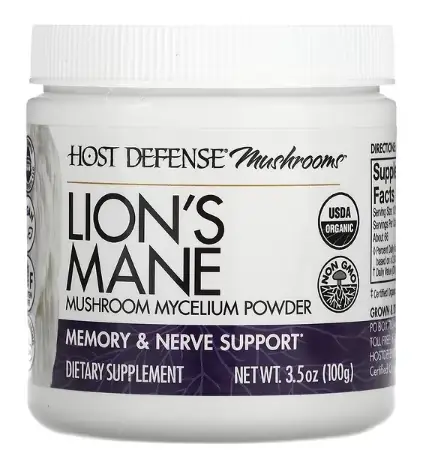
- 100 g (3.5 oz) of dried powder
- Organic
- Can be added to any food to improve its taste
What Are the Health Benefits of Eating Oyster Mushrooms?
Oysters are rich in vitamins B3 and B5 and contain noticeable quantities of folate (vitamin B9), potassium, phosphorus, zinc, and iron. They are believed to be rich in antioxidants, and there are studies that demonstrate that oyster mushroom extract can heighten the immune system.
What Are the Health Benefits of Eating Morel Mushrooms?
Morels are relatively rich in dietary fiber and protein. They are also an excellent source of iron and contain copious amounts of vitamin D and vitamins B2, B3, and B6, as well as manganese, phosphorus, and zinc.
It is important that you thoroughly cook morels before eating them, as they contain a toxin that can only be broken down through cooking. What’s more, in some people morels consumed with alcohol can cause stomach upset.
How Do I Choose and Store Them?
Any mushroom you are going to buy should be firm, not moist, and mold-free. All mushroom kinds can be stored in your fridge for about five days. A paper bag is a better container for them than a plastic one as it accumulates less water.
If you don’t know exactly what mushroom to choose to make use of its antioxidant and immune-boosting properties, this complex formula can be a great choice:
14 Mushroom Complex by Swanson
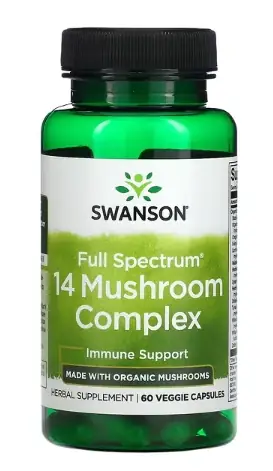
- Mushroom blend that includes cordyceps, lion’s mane, oyster, shiitake, and reishi extracts (35 mg each)
- Certified organic
Now you know what are the health benefits of eating mushrooms. Keep in mind, though, that no specific type of food can significantly improve your health: it is important that you have a balanced diet and exercise regularly.